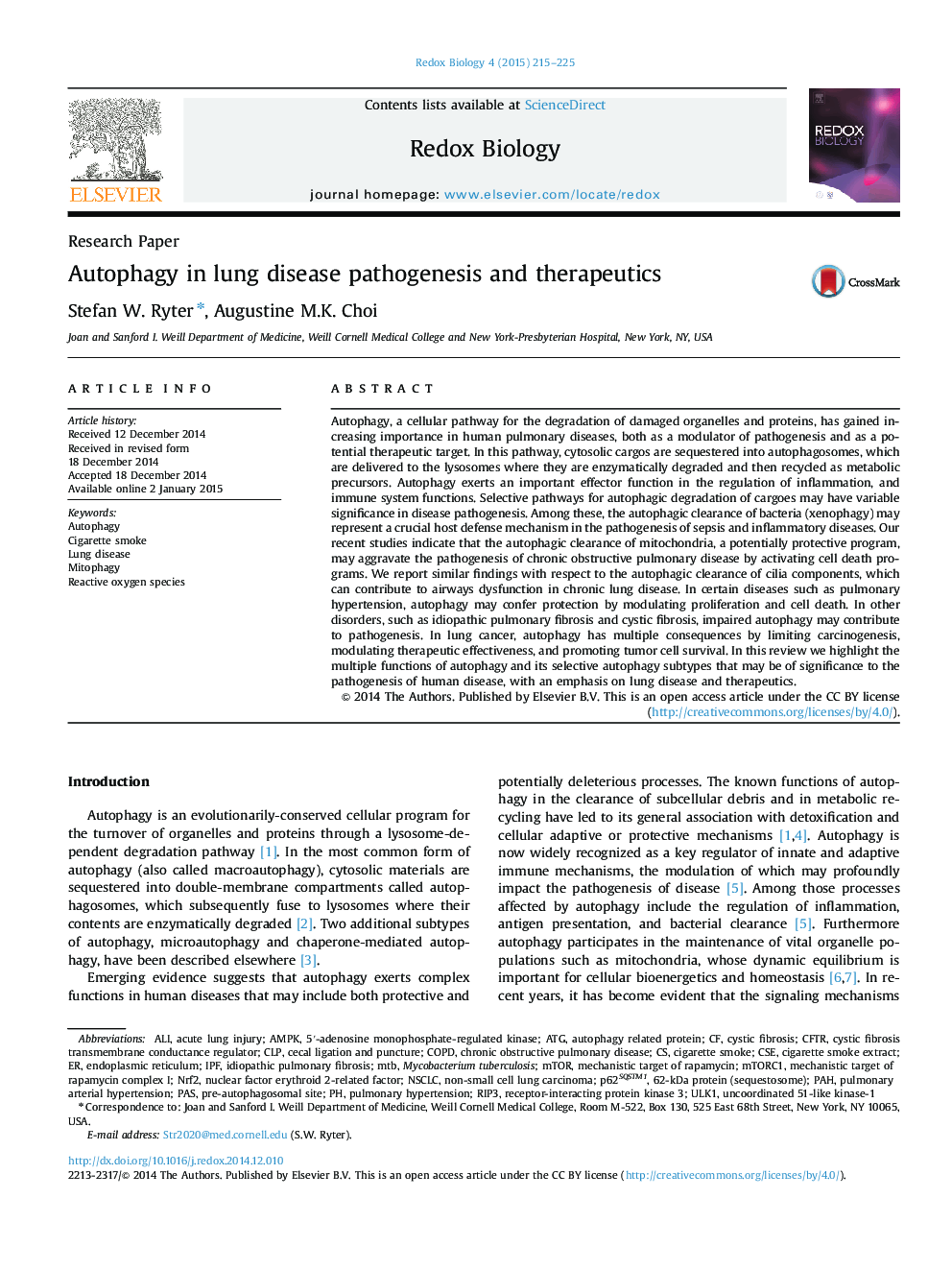| کد مقاله | کد نشریه | سال انتشار | مقاله انگلیسی | نسخه تمام متن |
|---|---|---|---|---|
| 1923067 | 1535846 | 2015 | 11 صفحه PDF | دانلود رایگان |

• Autophagy may impact the pathogenesis of pulmonary diseases.
• Mitophagy may exert deleterious effects in the pathogenesis of COPD.
• Autophagy can exert pleiotropic effects in lung cancer.
• Targeting autophagy may represent a promising therapeutic strategy in human diseases.
Autophagy, a cellular pathway for the degradation of damaged organelles and proteins, has gained increasing importance in human pulmonary diseases, both as a modulator of pathogenesis and as a potential therapeutic target. In this pathway, cytosolic cargos are sequestered into autophagosomes, which are delivered to the lysosomes where they are enzymatically degraded and then recycled as metabolic precursors. Autophagy exerts an important effector function in the regulation of inflammation, and immune system functions. Selective pathways for autophagic degradation of cargoes may have variable significance in disease pathogenesis. Among these, the autophagic clearance of bacteria (xenophagy) may represent a crucial host defense mechanism in the pathogenesis of sepsis and inflammatory diseases. Our recent studies indicate that the autophagic clearance of mitochondria, a potentially protective program, may aggravate the pathogenesis of chronic obstructive pulmonary disease by activating cell death programs. We report similar findings with respect to the autophagic clearance of cilia components, which can contribute to airways dysfunction in chronic lung disease. In certain diseases such as pulmonary hypertension, autophagy may confer protection by modulating proliferation and cell death. In other disorders, such as idiopathic pulmonary fibrosis and cystic fibrosis, impaired autophagy may contribute to pathogenesis. In lung cancer, autophagy has multiple consequences by limiting carcinogenesis, modulating therapeutic effectiveness, and promoting tumor cell survival. In this review we highlight the multiple functions of autophagy and its selective autophagy subtypes that may be of significance to the pathogenesis of human disease, with an emphasis on lung disease and therapeutics.
Figure optionsDownload as PowerPoint slide
Journal: Redox Biology - Volume 4, April 2015, Pages 215–225